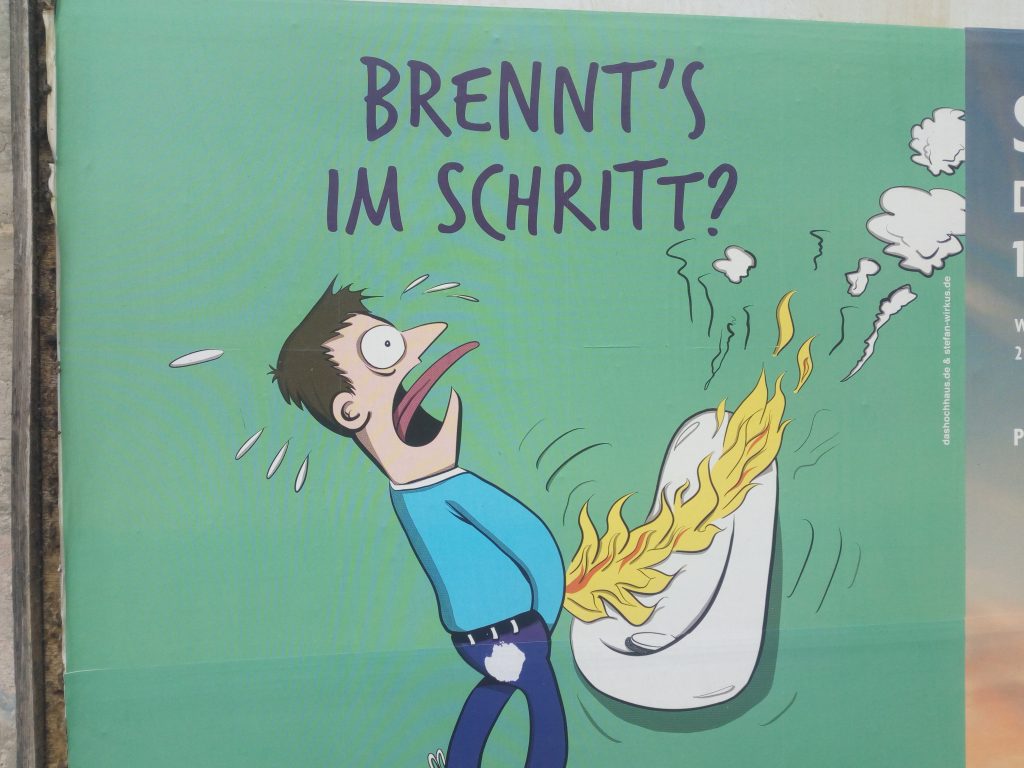The road less travelled, part IV: The rich texture of the original Hamburger
Hamburg has been minded by many nations but owned by none. This is visible in the city's openness, resourcefulness and rebelliousness.

Thursday 2 August 2018
Resilient, tolerant, refreshing, defiant. These four words sum up my brief but captivating day in Hamburg. I know it is impossible to truly get a feeling for a place in such a short time, but the whole idea of my ‘road less travelled' tour is to stop and fuel the senses a bit in some random and some not so random places on my way from Brussels to Stockholm.
These by-ways and my-ways saw me drift across Belgium, taking in Hasselt with its fancy car-free city centre which is famed for its jenever (gin) and a quaint Japanese garden, which I admit not to have visited, and up through Holland. A stop in Overloon with its gargantuan World War II museum, and overnight in Groningen saw me through the Day One. A leisurely start to Day Two including possibly the freshest, healthiest, tastiest breakfast I've had in a very long time set the pace for a saunter across to Hamburg in northern Germany, after a coffee and wander in Oldenburg (charming and worth a return visit).
Hamburg was a milestone destination along the myways route for several reasons – none of which necessarily involved the city's notorious St Pauli district.
First drawcard for Hamburg is that I have driven past the city many times in an apparent rush to be somewhere else … catching ferries, meeting deadlines that I probably had full control over but never realised at the time. I even recall skirting it at probably 200 km an hour in a lime-green Porche 911 (long story but it was the best and worst lift I got while hitch-hiking across Europe in my 20s – best because it was my first experience of German autobahns as they were intended to function; worst because it was my first frightening experience of German autobahns, seated, as I was, beside a crazed Dutch drug-lord, or so my imagination ran).
Second, it is one of a very few European cities, Brussels being another, that can claim to have been ‘minded' by many nations (for example, Denmark and, by default, Sweden, I presume, France for a time under Napoleon, and the Allied countries post-WWII) but ‘owned' by none. Its resilience and flair for flourishing even against the odds throughout history are well heralded. Less known, perhaps, is Hamburg's pioneering and democratic spirit, its embrace of modern urban imperatives (livable cities with green corridors, smart transport and an eye on the future) without casting aside its industrial heritage steeped in maritime tradition.
Third, it is where the Beatles famously honed their craft playing show after show in the bars of the port area, which by no coincidence is also the St Pauli red light district with its outsized reputation for sleaze. Hamburgers like to claim that their love of jazz and later swing played in the dance halls, despite crackdowns against such blatantly American ‘decadence' by the social nationalists and later Nazis, was their own little battle for democracy during a time where there was little on offer in Europe.
Hamburg remains unrepentant when it comes to its racy reputation, preferring to see it as a product of its openness and adaptability, which is rarely a bad thing. It's sniffy defiance is part of its historical tolerance of others (the minders, visitors and mariners of the past). You walk a few hundred metres away from the seedy Reeperbahn back to the centre and the business of propriety instantly takes over. Swank eateries lap the waters of the canal. Tour boats ply the Binnenalster and Aussenalster lakes, which give the city endless breathing space.
There are two sides to the Hamburg story. And I look forward to discovering more next time I'm in the neighbourhood.
____
Read part I: Navigating without algorithms
Read part II: Overwhelmed at Overloon
Read part III: The cycle of life in Groningen


